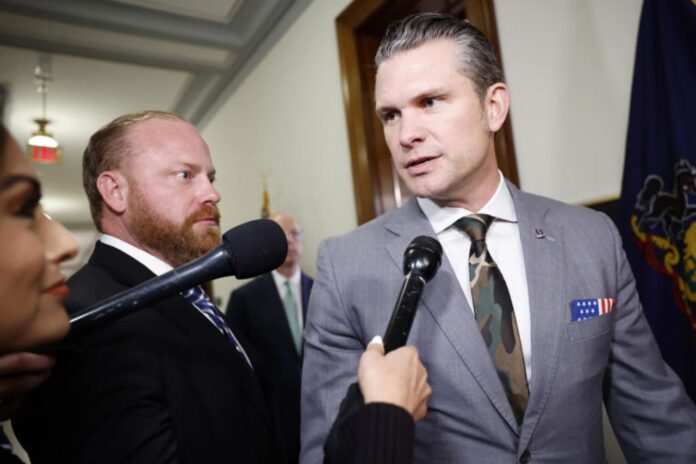Imagine trusting someone with the nation’s most critical secrets, knowing they’ve already admitted to being vulnerable to blackmail. That’s exactly the situation we’re looking at with Pete Hegseth, President Trump’s pick for Secretary of Defense. Hegseth’s own words—an attempt to justify his actions—have instead exposed a glaring vulnerability that could have catastrophic consequences for national security.
A Damning Admission
When questioned by Megyn Kelly about why he paid a settlement to a woman accusing him of sexual assault, Hegseth’s response was startling:
“I paid her because I had to—or at least I thought I did at the time. I had a great job at Fox and a wonderful marriage… It was a negotiation purely to try to prevent that.”
This is blackmail in its purest form—coercion through fear and exploitation. And here’s the hard truth: anyone susceptible to such coercion is automatically disqualified from holding sensitive national security roles.
The Rules Are Clear
For decades, federal policy has barred individuals with vulnerabilities like blackmail from occupying positions of trust. Executive Order 10450, still in effect since 1953, explicitly states that anyone susceptible to exploitation is a risk to national security. Standard Form 86, the required questionnaire for such roles, screens for exactly this type of vulnerability.
By his own admission, Hegseth fits the profile. He caved once to protect his personal and professional life. What’s to stop him from doing so again, especially when the stakes involve national security?
A Question of Integrity
Even if we set aside the assault allegations, Hegseth’s actions paint a troubling picture. He concealed this settlement from President Trump and the transition team. Choosing self-preservation over transparency raises serious concerns about his judgment and honesty.
Then there’s the issue of his drinking habits. On one hand, he told Megyn Kelly he’s never had a drinking problem. Yet in past interviews, he openly discussed heavy drinking as a way to “self-medicate.” These contradictions raise questions: Is he being honest with himself, let alone the American people?
A False Comparison
Some have tried to defend Hegseth by comparing his settlement to President Trump’s nondisclosure agreements. But let’s be real—Trump’s agreements didn’t involve allegations of rape or sexual assault. This isn’t apples to apples; it’s a completely different ballgame.
Words That Can’t Be Ignored
Even Hegseth’s own mother once described him as “an abuser of women” in a leaked email. While she later backtracked, the vivid details of her accusations leave an uncomfortable shadow over his character.
The Bigger Picture
Yes, people can change. Hegseth claims to have found redemption and spiritual growth. That’s admirable—for his personal life. But leading the Department of Defense requires unwavering integrity, sound judgment, and freedom from vulnerabilities. Hegseth’s history suggests he falls short on all counts.
The risks are simply too great. This isn’t about political alliances or personal grudges—it’s about protecting the nation. The Senate must prioritize America’s safety and reject Pete Hegseth’s nomination.





